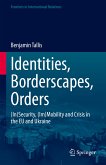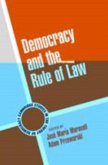Where do political identities come from, how do they change over time, and what is their impact on political life? This book explores these and related questions in a globalizing world where the nation state is being transformed, definitions of citizenship are evolving in unprecedented ways, and people's interests and identities are taking on new local, regional, transnational, cosmopolitan, and even imperial configurations. Pre-eminent scholars examine the changing character of identities, affiliations, and allegiances in a variety of contexts: the evolving character of the European Union and its member countries, the Balkans and other new democracies of the post-1989 world, and debates about citizenship and cultural identity in the modern West. These essays are essential reading for anyone interested in the political and intellectual ferment that surrounds debates about political membership and attachment, and will be of interest to students and scholars in the social sciences, humanities, and law.
Dieser Download kann aus rechtlichen Gründen nur mit Rechnungsadresse in A, B, BG, CY, CZ, D, DK, EW, E, FIN, F, GR, HR, H, IRL, I, LT, L, LR, M, NL, PL, P, R, S, SLO, SK ausgeliefert werden.
'An exemplary demonstration of the creative benefits of collaboration between normative theorists and social scientists on a vital subject of growing concern world-wide. Its special strength is to lift issues of citizenship, immigration and ethnicity out of their specialized niches and reconsider them in the context of what one of the contributors properly characterizes as a ‘PostWestphalian World.’ Deserving a wide readership in philosophy, political science, sociology, and international affairs, this book will undoubtedly stimulate a reconceptualization of the entire field.' Aristide R. Zolberg, Walter P. Eberstadt Professor of Political Science, New School for Social Research









